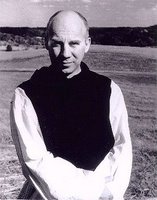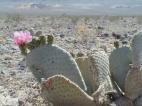“Once some robbers came into the monastery and said to one of the elders: We have come to take away everything that is in your cell. And he said: My sons, take what you want. So they took everything they could find in the cell and started off. But they left behind a little bag that was hidden in the cell. The elder picked it up and followed after them, crying out: My sons, take this, you forgot it in the cell! Amazed at the patience of the elder, they brought everything back into his cell and did penance, saying: This one really is a man of God!”
—Wisdom of the Desert
While in Boston this weekend, I found myself in this sprawling, glittering maze of a shopping mall that connects several of the downtown hotels. Convention-goers at the hotels are spared the task of walking outdoors on the busy street by passing through the mall as they move from one hotel to the other, and are assailed by the noise, flash and smells of literally millions of beautiful consumer products and foods. Like all malls, there is a plasticity and dissonance about the place, and I found myself both repulsed by the materialistic spectacle and drawn to the wonderful things that appealed to my own tastes and pleasures.
And then, in the middle of all this, right next to Dunkin’ Donuts, was a small chapel dedicated to St. Francis of Assisi. Through the glass doors, passersby got a glimpse of the darkened, candle-lit chapel. A few solitary souls were praying there in adoration of the Eucharist.
It was a jarring scene, this oasis of peace and stillness in the midst of all the consumer celebration. After passing the chapel several times through the weekend, I finally went in myself, and knelt in the quiet darkness. Something just wasn’t right about this, and at first I thought that the chapel’s presence amounted to some kind of religious endorsement of the shopping frenzy going on outside. But the more I lingered, the more the holiness of the place moved me. This little chapel, like the little saint whose name adorned the door, was a witness to the virtues of silence, compassion and justice. What more appropriate place is there for this kind of witness than in the midst of a shopping mall? Depending on my level of guilt, the chapel was either a condemnation of my own self-absorbed consumerism, or else just a quiet reminder that while I go about my busy, affluent lifestyle, I am vastly more than the sum of all the things I have bought or produced today.
We do not have to become monks to enter the reign of heaven, though such renunciation can certainly heighten our awareness of the Divine Presence. Rather, the reign of heaven is right here among us, within our daily activities, the buying and selling and producing and consuming that is a part of our everyday world. Our call to surrender completely to the Mystery lives in dynamic tension with the materialistic temptations we encounter each day. So perhaps we need more such chapels in our shopping malls, in our homes, in our places of work, to remind us of our true self, who possesses nothing, buys nothing and consumes nothing whatsoever, because the true self dwells in a state of perpetual abundance.
 “A certain brother went to Abbot Moses in Scete and asked him for a good word. And the elder said to him: Go, sit in your cell, and your cell will teach you everything.”
“A certain brother went to Abbot Moses in Scete and asked him for a good word. And the elder said to him: Go, sit in your cell, and your cell will teach you everything.”







